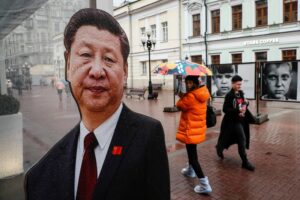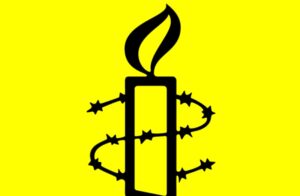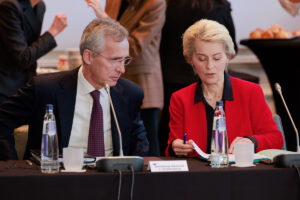 Prime Minister Dacian Ciolos released on Monday evening the project – as set of principles and general measures – which he promised last week.
Prime Minister Dacian Ciolos released on Monday evening the project – as set of principles and general measures – which he promised last week.
The Prime Minister insists, in launching the project, on the fact that he will not run for Parliament and will remain politically independent during this mandate.
Dacian Cioloş’s plan (published on website ro100.ro) has two parts:
The project:
First #100days: organizing change
- Government should be rethought at the ministerial-level functionality as a cabinet formed by a handful of ministers, ministries merged based on the principle of development clusters and a reduced number of implementing and regulatory agencies.
- Restructuring of central government should be made based on adjusting Law 90/2001 on the organization and functioning of the Government, to include a model of internal organization for each ministry that defines responsibilities and eliminates the risk of tasks duplication.
- Governance is built based on cross-sectoral objectives, clearly assumed for the benefit of citizens (e.g. coordinated investment, reduce poverty, reduce bureaucracy, administration digitization, modern infrastructure, etc.).
- #ComisiadeTaiatHartii 2.0 becomes an independent institution within the Government Chancellery and continues the mission to reduce bureaucracy in support of the citizens, entrepreneurs and simplify inter-institutional relations.
- Government institutionalizes #GovITHub and the Information Technology Coordinator. These institutions aim to ensure that public institutions’ IT investment in are efficient, based on a strategy and in the interest of the citizens.
- Government strategies, public policies and legislative projects undergo an initial assessment of their impact when adopting or once every 3 years. Those who fail the test of effectiveness and impact cease automatically.
- Consolidation of all national and European funds allocated for development and a real multi-annual approach to their use. Budgetary funds that distribute money without projects or development plans and control mechanisms, in an unpredictable manner, based on political clienteles should be terminated.
- Public expenditures clearly prioritized, with an impact assessment. Public investment evaluation unit should be operationalized and institutionally strengthened within the Chancellery. All government investments pass through this filter.
National projects portfolio
- Public administration reform: amending Law 188/1999 regarding the status of civil servants to introduce new criteria for recruitment, evaluation and stimulating them. The objective is to create a public professional, competent, of integrity, transparent administration, both at central and local levels.
- Adjusting the Framework Law 284/2010 regarding the unitary remuneration of personnel paid from public funds to eliminate discrepancies and discrimination between different sectors of the public sector.
- Making the National Anticorruption Strategy operational, strengthening the National Agency for the Management of Seized Assets (ANABI), multiannual pact for financing and strengthening the judiciary system.
- Undertaking and making the 17 chapters of Competitive Romania Strategy operational.
- Creating a national program to support entrepreneurship as an engine of the Romanian economy. Each leu invested from public funds should support a sustainable, quality economic growth, job creation and attracting private capital.
- Continuation of anti-poverty package based on budget allocation, legislative changes, deadlines for meeting commitments annually.
- Legislative proposal to establish a multiannual financial framework, to ensure continuity of major investments in the economy by committing multiannual budgetary resources. Romania’s budget will be prepared to follow programs and objective, not the need of institutions to justify their existence.
- Establishing a portfolio of investment projects of national interest to benefit from European financing and national budget in health, education, large infrastructure.
- Prioritization of applied research, development and innovation as a growth of value added in the economy.
- Encouraging the participation of the Diaspora in the economy through approaches such as „RePatriot” and continuation of Diaspora Start-Up programs.
- Review of legislation and creation of a national forests program for conservation and sustainable exploitation.
- Reorganization of the State Domains Agency in a structure that allows the purchase of agricultural land, land consolidation and reselling them to young farmers, so as to support development of local agriculture, strengthening of family farm, the associations and the middle class in the countryside.
- A package to encourage production and trade (including export) of added value in agriculture, the branch association and organization and establishment of Agricultural Chambers as independent advisory and support structures for farmers, coordinated by them.
- Continuing investment in the cadastre of the country territory, especially for agricultural land.
- Continuing and improving prevention and management program for earthquake risk and other natural disasters.
- Continuing change of perspective in the implementation of EU programs, with an emphasis on simplification, increased quality of projects and impact of funded programs in economy. Developing innovative financial instruments using European funds.
- Implementation of Integrated Territorial Investment strategies using EU funds and national budget in the Danube Delta, the Jiu Valley, Moldavia, Rosia Montana-Apuseni and identifying other areas that need integrated intervention packages of public and private funds.
- Preparing in optimal conditions the Romanian Presidency of the Council of the EU in 2019.
- Developing the Bulgaria-Romania-Hungary- Austria pipeline (BRUA) continuing the efforts towards energy interconnection and strengthening the independence and energy security of the country.
- Multiannual approach of the enhancement of national historical and cultural heritage.
- Supporting professional sports and developing a national program to promote sports for masses.









